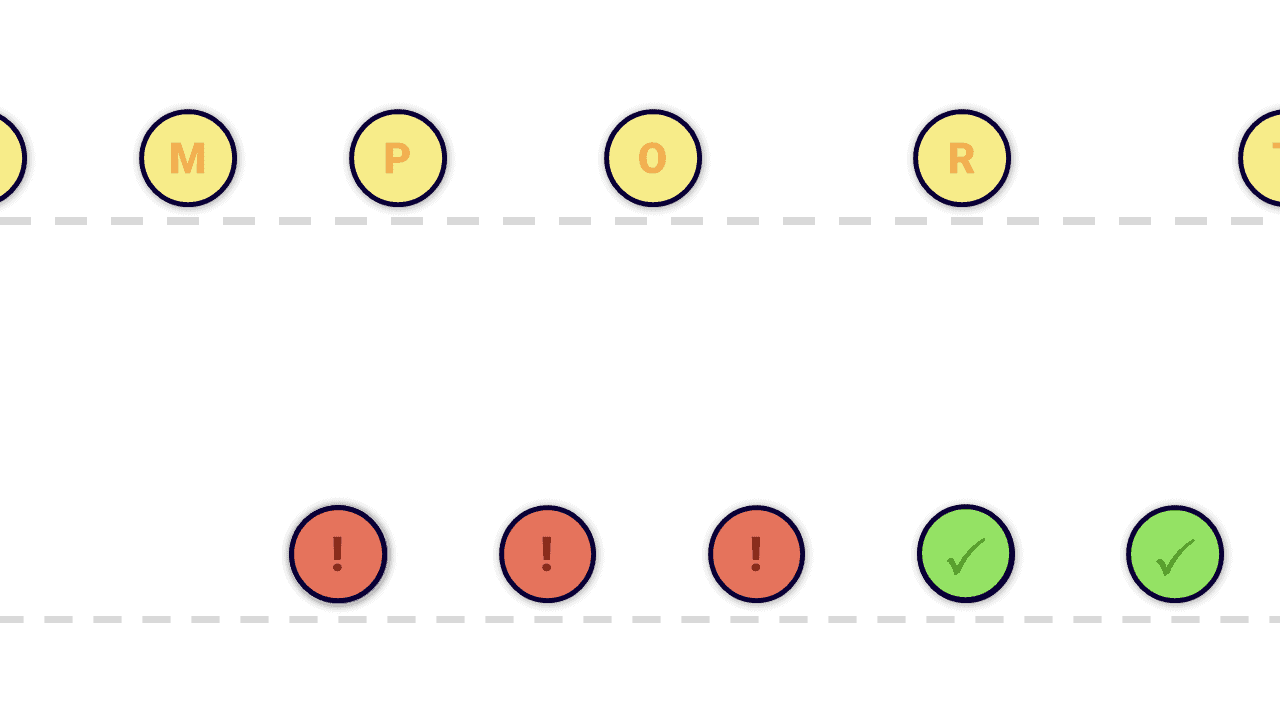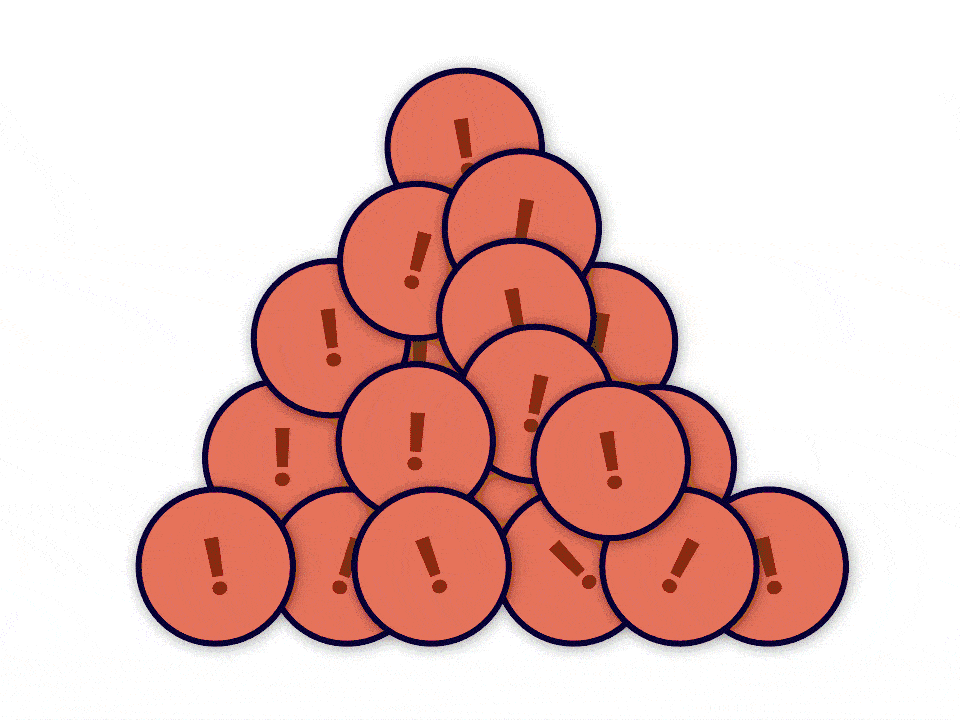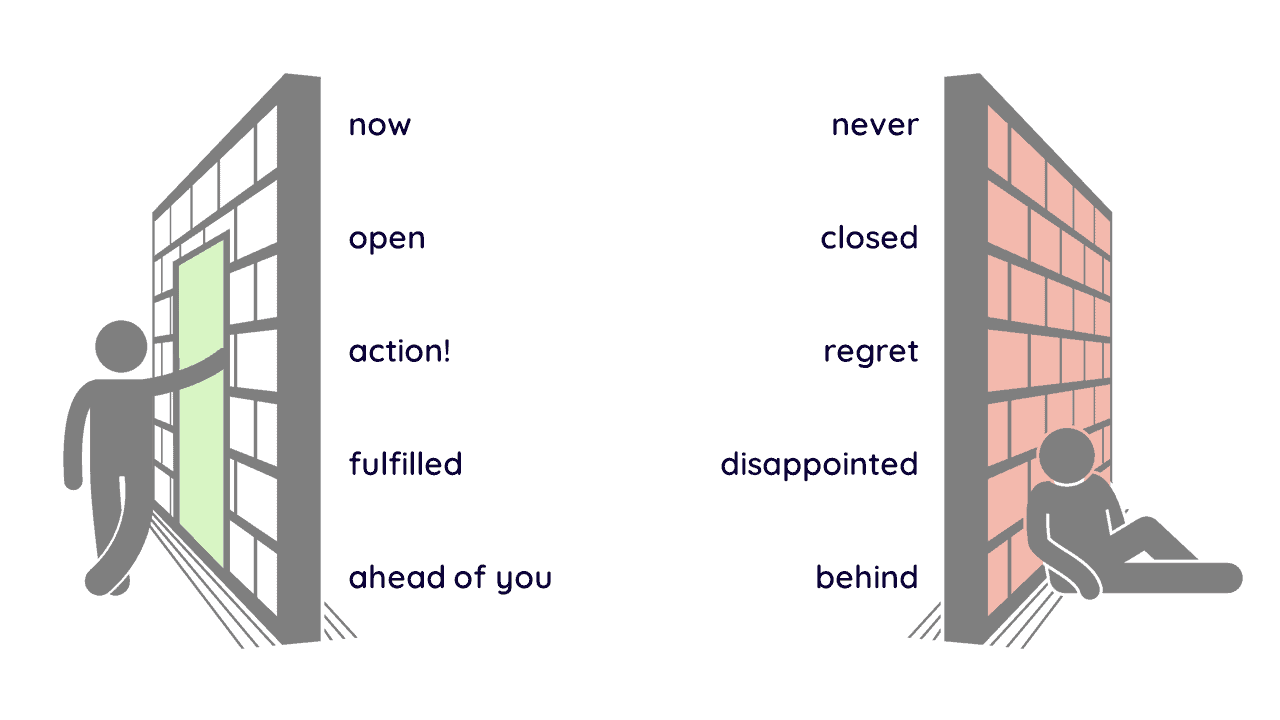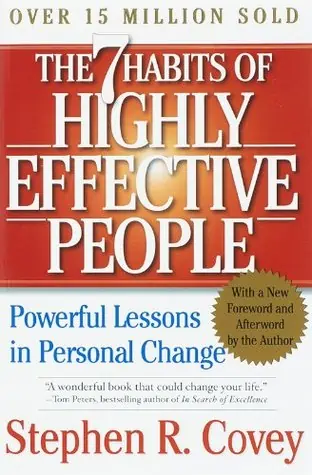
video
Urgent & important do not mean the same thing: - Urgent implies an imminent deadline by which something has to be done - Important means this is a significant priority, something that really matters – at work or in life generally - It’s like having 2 conveyor belts: one –‘ the urgency belt’ - delivers what is urgent, item after item. The second, separate belt, delivers what is important, potentially in priority order. And, like separate conveyor belts, they do not feed each other; there is no guarantee that what is urgent is also important, or that what is important is also urgent. So everyone has to decide which belt they are on: urgency or importance. And often this decision is not made consciously – and that can have serious consequences. So if you prioritise by urgent, the only way important tasks get done is if, somehow, they fall onto, or are placed onto, the urgent line… At work certainly, and often in life generally, we tend to be on the urgency belt. We focus on what is urgent – and often at a significant cost to what is, or we say is, important…
Urgent & Important: The Difference

audio
If you prioritise by urgent, then at the start of any work day, you will focus on the most urgent task. Once that has been dealt with, you will move on to the next urgent task, and so on through the day, the week, the year…
Most of this is unconscious and automatic – a combination of habit and culture: “it’s what we do”. More than that, if asked why you move from one urgent to the next, it is probably because ‘urgent’ is assumed to be a priority…in other words, if we reverse it – it’s a priority because it is urgent…and not urgent because it’s a priority.
If this is the pattern for work – or life – then it follows that everything you do, and the order in which you do them, is driven and determined by its urgency. So everything you do will…be…urgent.
And yet not everyone seems comfortable with this conclusion, for the following reasons:
Many people do not like working under the pressure that urgency brings (though of course, there are some that do)
There never seems time to do things that are non-urgent
When driven by urgency, quality can suffer – the task, being urgent, has not been given the time necessary to do a good job
Priorities are decided by urgency, rather than anything else…
As a consequence of all this, it is the urgent tasks that get done…and tasks that could be driven by other things, such as importance – may suffer…
Everything Becomes Urgent




audio
So assuming you prioritise by urgent, have any of the following happened to you?
- You meant to make an appointment for a check up with the dentist, but didn’t – and now you have screaming toothache
- You meant to go to the gym tonight, but had that urgent report to finish
- You meant to go see your favourite band live in town, but never got round to buying the tickets, and now it’s sold out
- You meant to get your car serviced, but always had other things to do, and now it’s broken down on the motorway – and you meant to join the AA, but that’s another thing you never got round to,,,
All of these – and many, many more - are probably something you meant to get round to – but never did. Although you knew they were important, they were never a priority, and never able to compete with anything that was urgent.
So although you consider them to be important, and say they are important – you don’t act as though they are. And of course, there may be other reasons – your are lazy, or forgetful, for instance; but prioritising urgency is a main contender.
And by ‘too late’ we don’t just mean ‘you’ve missed the boat; we also mean that, left so late, you do not do the job the effort or time that its importance deserves. So sometimes ‘too late’ is more a quality issue than a failure issue.
Take this example: suppose there’s a plan to close the Unit you work in and make you and the team redundant. You’ve all agreed to fight this proposal. The decision will be made at a Board meeting in 2 months’ time, and you’ve been allowed to make a presentation of your case at that Board meeting.
Important, right?
It needs to be ready in 2 months – right?
Does it need to be done today?
Is there something on your list that is more urgent for today?
If so, the preparation for the Board meeting can wait.
And so to tomorrow. Does it have to be ready today?
And is there something else more urgent today?
And so on, and so on, until, of course, it becomes urgent…
And by then, you may not have given yourself and your team the time that the issue’s importance deserves…
So – how to prevent this drift to ‘too late’? Here are four ideas:
Idea 1: bring your (so called) important onto your urgent to do list: force it to be urgent
Idea 2: change your approach to be more balanced. Have your day or week consist of a commitment to urgent AND important
Idea 3: instead of being driven by an end date (or deadline, which is what drives urgency), be driven by a start date for anything where the quality of that task requires sufficient time to be given to it.
Idea 4: break the long term but important tasks (like the ‘Save the Unit’ example raised above) into smaller chronological steps, and make each step urgent – for example – call a team meeting to plan our response – by Friday of this week”
Some Important Happens Too Late
An important decision needs your team’s views – decision will be made in 2 month’s time…
The situation
You heard today that your company’s Board is considering closing the Unit you work for.
They will be making a decision in 2 month’s time.
You (and your team) want to make a case to the Board to retain the Unit.
Your task:
List the things you would want to do, with broad timescales attached, to help you make a good case to the Board... the is space in the 'notes' if you want to jot down your ideas.
audio
We now know that urgent and important are different, and march to the beat of different drums. If you prioritise by urgent, then important only happens if it becomes urgent.
So now we come to the really significant, and possibly upsetting point. Some important doesn’t happen at all, because it never becomes urgent.
That sounds crazy. Surely if it’s important, then that is enough to make it happen.
Really?
Time is like a same-size blank canvas that we each get at birth. How we colour it in – well, that’s up to us. And no two pictures will be the same. The key point though, is this: do you like your picture? Are any bits missing? And are there parts yet to be painted in? And do you have enough space for them? And if you could, knowing then what you know now, would you start again?
For so many people, there is a huge amount of regret towards the end of their life. Regret for what they said and knew was important, but never, somehow, got round to it. And there’s a significant reason for this – prioritizing by urgent.
You see, for those prioritising by urgent, the clock is always ticking, and reminding them of the urgent tasks to be delivered. Important doesn’t have that time pressure at all. Important can wait: urgent can’t. That’s why we may stay late in the office to finish off something or other, and miss taking the kids to the park. There is absolutely no doubt that, in later years, many say they missed, and are truly sad about, not watching their kids grow up. But – hey ho – it’s too late now. It may have been thought of as important, but it was never a day to day priority, like clearing their work ‘to do’ list.
So I’d like to run an exercise with you to really bring home this point. You’ll need pen and paper, or an open file on your pc. Trust me, the power is in doing this, not just listening to it. So please do what I’m asking you to do. And by the way, it’s quicker just to listen, so that’s what you’ll do if you’re urgency driven; but I’m saying that doing this task, rather than listening to it, is important. So which driver will you use here and now? Urgent or important? If the latter, then pause this audio if you need some time to get set up….
On your paper or screen, write this heading: “For me, it is important to be:
- and then write down, in list form, 3 things three things in life you want that you can control.
As an example of what I’m getting at, here are my three:
“For me, it is important to be
- happy
- healthy
- positive”
So now pause the audio while you write your list.
Now, and here comes the scary part, go to the word ‘important’, cross it out, and replace it with the word ‘urgent’. So it now reads “For me, it is urgent to be…”then your list.
Does that make sense? It doesn’t even sound right. And that’s because the things you’ve identified as important are not on the urgency belt. And yet, and yet, and yet….I know, for sure, that if I want to achieve those 3 important things on my list, I have to be them, invest in them, every day. And in that very real sense, they are important enough to be a daily focus. Because, if I don’t deliver them and invest in them daily, then they won’t happen.
So important has two important strands: externals, like a major trip or holiday, and internals – how you want to be. And both can be neglected and potentially unrealised if not acted upon now or left too late….
Some Important Doesn't Happen at All

want more?...
The 7 Habits of Highly Effective People
Stephen R Covey
Full of practical time management tips, grouped under 7 relevant headings:, such as 'Begin with the end in mind' and 'Put first things first'...
keep reading... open
Leaving Everything for Later is Too Late
Exploring Your Mind
A brief outline of why we don't act now, and the consequences for later...
keep reading... article website




